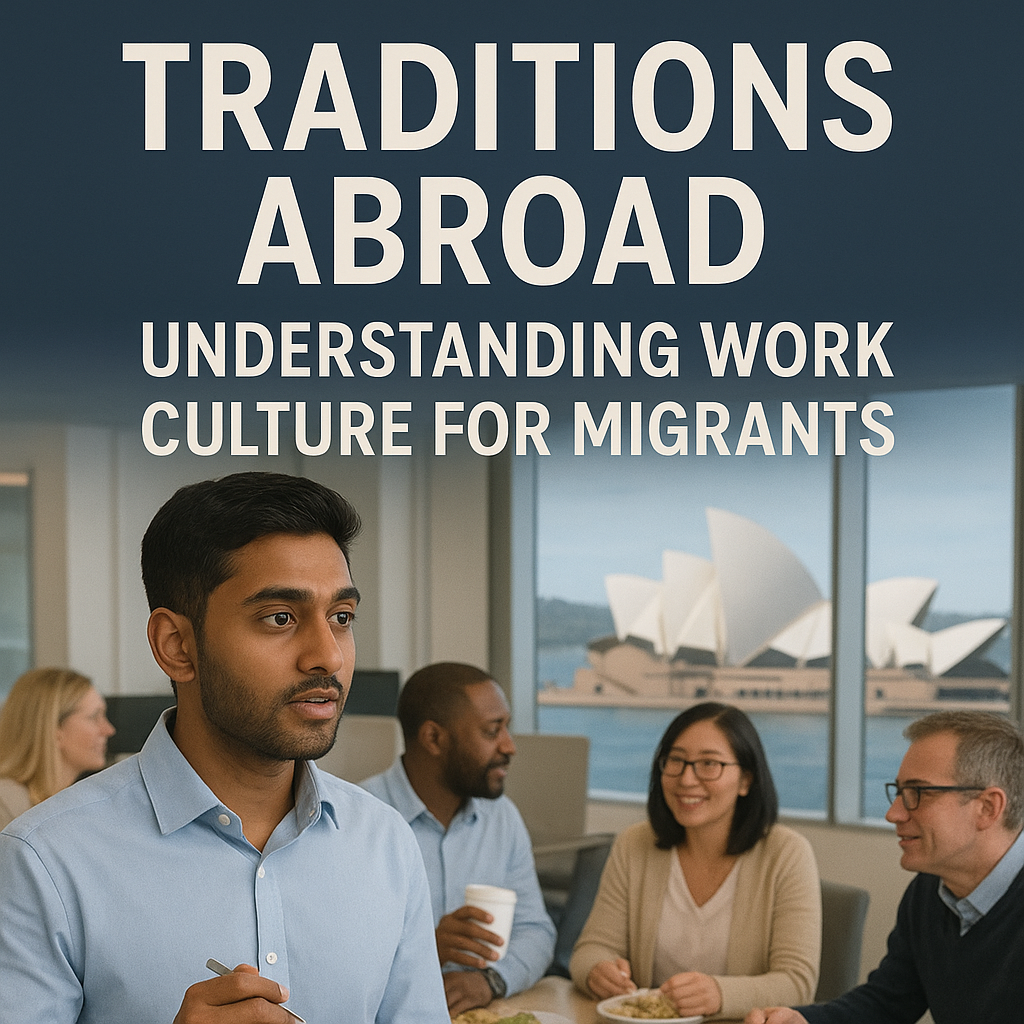Explore work culture abroad, learn professional etiquette, and discover how to adapt to foreign workplace customs as an expat or migrant.
Introduction
Adapting to new workplace traditions abroad poses a challenge for many migrants. Understanding work culture in different countries improves job satisfaction, collaboration, and career success. This article offers insights into key cultural norms, professional etiquette, and how to navigate office culture for migrants effectively.
Navigating Work Culture Differences Abroad
Work culture varies widely across countries, influencing behavior, communication, and expectations. For example, the United States emphasizes individual achievements and long working hours, compared to European countries where work-life balance and collective decision-making prevail. Northern European nations often blend work and life harmoniously with flexible schedules, while countries like Japan emphasize hierarchy and loyalty.
Understanding these cultural dimensions—like power distance and individualism—helps migrants adapt more smoothly. Recognizing the appropriate communication style, leadership approach, and expectations about punctuality or confrontation reduces misunderstandings and builds trust with colleagues.
Practical Tips to Adapt to Foreign Workplace Traditions
Adapting begins with observing and respecting local customs. Embrace local greetings, dress codes, and meeting etiquettes. In some cultures, formality and hierarchy are paramount, requiring patience and deference; in others, informality and directness guide interactions.
Learn the balance between team collaboration and independent work valued in your new environment. Developing cross-cultural communication skills, such as active listening and clear expression, can bridge gaps. Seek feedback and be open about differences to foster mutual respect. Joining expat groups or workplace diversity initiatives offers practical support and networking.
Enhancing Success through Cultural Awareness
Organizations worldwide benefit from embracing cultural diversity, which improves innovation and employee engagement when managed well. Migrants who proactively learn international business etiquette and workplace customs for newcomers accelerate their integration, gain workplace confidence, and build stronger professional relationships.
Cultural awareness also helps navigate conflicts constructively, recognizing that attitudes to authority, time, and confrontation vary significantly. Employers and migrants alike should promote transparent dialogue and intercultural training for a cohesive, productive workplace.
Mastering workplace
Mastering workplace traditions abroad is essential for successful employment and social integration. By understanding and respecting cultural norms at work abroad, migrants can foster positive relationships and thrive professionally. Actively adapting to your new work culture turns challenges into opportunities for growth.


